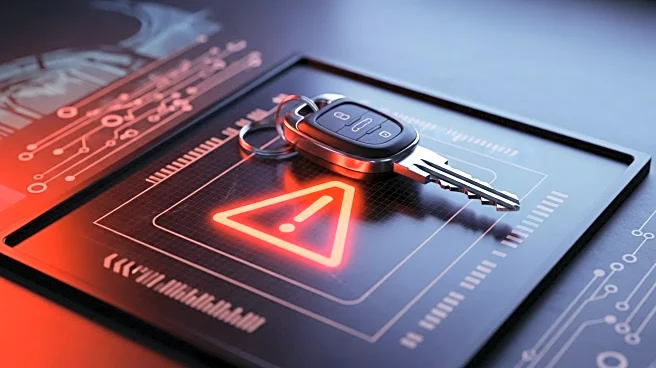What's Happening?
Jaguar Land Rover (JLR) has experienced a significant cybersecurity incident that has disrupted its production and retail operations. The company, owned by Tata Motors, reported that while there is no evidence of customer data theft, it has shut down its systems to mitigate the impact. This incident adds to JLR's challenges, following delays in launching new electric models. The attack is part of a broader trend of increasing cyber threats targeting businesses globally, with other UK companies like M&S and Co-op Group also facing similar issues recently.
Why It's Important?
The cybersecurity breach at Jaguar Land Rover highlights the growing threat of cyberattacks on major corporations, particularly in the automotive industry. Such incidents can lead to significant operational disruptions, financial losses, and damage to brand reputation. As companies increasingly rely on digital systems, the need for robust cybersecurity measures becomes critical. This incident may prompt other businesses to reassess their cybersecurity strategies to protect against sophisticated cyber threats. The automotive industry, in particular, may face increased scrutiny and pressure to enhance its cybersecurity protocols to safeguard sensitive data and ensure operational continuity.
What's Next?
Jaguar Land Rover is working to restore its operations in a controlled manner. The company will likely conduct a thorough investigation to understand the breach's origins and prevent future incidents. This situation may lead to increased investment in cybersecurity infrastructure and training across the industry. Stakeholders, including customers and investors, will be closely monitoring JLR's response and recovery efforts. Additionally, regulatory bodies may push for stricter cybersecurity compliance standards to protect consumer data and maintain trust in digital systems.










